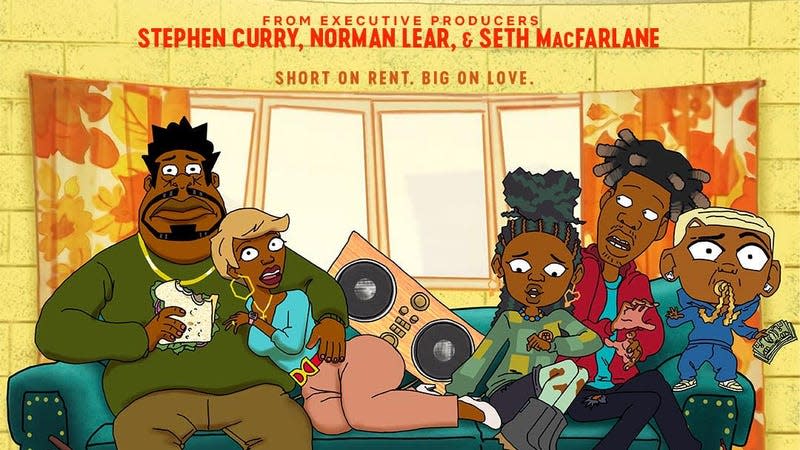Good Times Is Still Getting a Bad Rap. But Who's Really to Blame?

If you’ve been on social media and you’re a usual watcher of new Netflix series, then you may have seen the recent discourse of the latest animated show, “Good Times.”
Inspired by the original 1974 “Good Times” series and dubbed as a reboot, the adult comedy made negative waves on X/Twitter the day the trailer dropped, with many calling the show grossly stereotypical, dated and exploitative. Others held out hope, crossing their fingers that the show in its entirety would present something different than originally thought.Well, unfortunately for all those involved—including Yvette Nicole Brown, J.B. Smoove, Marsai Martin, Jay Pharoah and showrunner Ranada Shepard—the series premiere still left a sour taste in people’s mouths with many still expressing their disdain.
And while there were a handful of folks who’ve given the show a chance and liked it, an overwhelming majority are still put off by the trailer and the themes, characters, scenes portrayed. Given its ties to beloved 70's show, it’s newly reimagined version seems to be in stark contrast to the original and has prompted many to question why a show about a Black family that showcases a myriad of seemingly negative stereotypes and tropes—even for the sole purpose of adult comedy and exaggeration—is necessary in today’s day and age. To put it simply, there’s hardly anything good about these “Good Time” if you’re going off a large sector of public opinion (and the NAACP, for that matter)—so where did the creative team miss the mark?
Could it have been when they parted ways with “The Boondocks” co-EP and writer Carl Jones who admitted to leaving the project over “creative differences?
For the record I was involved with the Good Times animated series in the very VERY beginning but due to creative differences, I had to walk away. So I haven’t even seen one episode or script of this version of the show…
— Carl Jones💎 (@iamcarljones) March 28, 2024
“For the record, I was involved with the Good Times animated series in the very VERY beginning. But due to creative differences, I had to walk away. So I haven’t even seen one episode or script of this version of the show,” he wrote in a post on X/Twitter in late March.
If that’s not the reason, could it be due to the lack of heavy promo from majority of the cast, e.g. junket clips, daytime and late night show appearances, radio spots and the like? That seems to be the reasoning showrunner Ranada Shepard is leaning towards.
“You haven’t seen J.B. [Smoove] and Yvette [Nicole Brown] and Marsai [Martin] and Jay Pharoah and Slink Johnson on couches all across America, which typically happens when you’re rolling out a show,” Shephard explained in a new interview with The Hollywood Reporter on Thursday. “There was no framing that the audience had, it was just: Watch this and form an opinion. And, they watched and they formed an opinion.
She later added:
“I was always rooted in [the fact that] I understand if this is jolting. Because what you needed was someone to tell everyone, ‘I know you’re used to the sweet sitcom, but this is not only a reimagination, it’s in a different genre that requires it to be loud and offensive with hard jokes and inappropriate.’ Without that type of framing you can never blame the audience and I never would.”
So who is to blame? If audiences can’t be trusted to come up with the correct assesment of program without the aid of insight and information from the people behind it...and the people behind it aren’t doing much to provide insight and information prior to the programs release or even shortly after..what other outcome do you expect?
Maybe it’s a classic case of impact over intent.The intent may have been good but due to seemingly off-kilter execution and lack of explanation for things going into—viewers are left to draw their own conclusions based off the impact of how it lands with them.
I can appreciate an explanation after the fact but maybe things would have panned out differently and people would have been more receptive if conversations and breakdowns were given before the first episode dropped. You can’t blame the audience and you can’t blame the creators involved to a degree, so who’s left?

